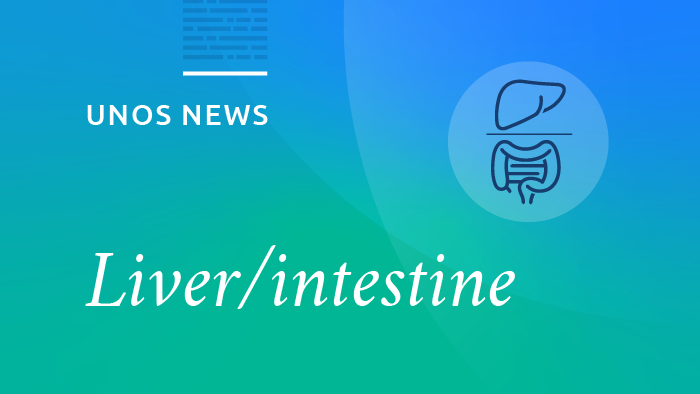Chicago – The OPTN/UNOS Liver and Intestinal Organ Transplantation Committee, at its meeting Oct. 10, voted to advance a compromise proposal to enhance liver distribution for a final vote by the OPTN/UNOS Board of Directors. The proposal is intended to balance key principles including giving appropriate priority for the sickest liver transplant candidates while mitigating logistical impacts.
“We agree as a transplant community on the need to improve access to transplantation for the most urgent waitlisted candidates, and we believe this is a way to move forward toward that goal,” said committee chair Julie Heimbach, M.D. “We’re committed to closely monitoring the impact of this change and addressing any unforeseen effects on specific groups of candidates.”
The committee voted not to adopt, as written, a proposal introduced for public comment in August 2017. In its place, the committee developed a modified proposal based on components addressed in the original proposal and feedback provided through public comment, regional meetings of OPTN/UNOS members and recommendations of other OPTN/UNOS committees. Key components of the revised proposal include the following:
- Additional transplant priority (equivalent to 3 MELD or PELD points) would be awarded to liver candidates with a MELD or PELD of at least 15, and who are either within the same Donation Service Area (DSA) as a liver donor or are within 150 nautical miles of the donor hospital but in a different DSA.
- Adult candidates who have a calculated MELD score of 32 or higher, as well as pediatric candidates younger than age 18 with a MELD or PELD score of 32 or higher, would be prioritized for organ offers.
- Livers from deceased donors who are age 70 or older, or who die of cardiorespiratory death, would not be subject to offers to the expanded DSA plus proximity circle. Livers from donors with these medical characteristics are most often used within close proximity of the donor location, according to the medical judgment of transplant professionals.
The committee acknowledged the importance of including system performance metrics beyond variance in median MELD at transplant as it evaluates the effect of the proposal. Along with the proposal the committee will incorporate a detailed monitoring plan to study a number of outcome metrics and allow the committee to address any significant unwanted effects through policy amendments. While specific metrics will continue to be developed and publicly communicated, likely components would include:
- The number of deceased donor liver transplants
- Waiting list mortality rates and transplant rates
- Transplants for candidates with calculated MELD/PELD scores as well as those with exception scores
- Changes in survival rates at the transplant center or DSA level
- Changes in livers not recovered for transplant or discarded without transplant
The OPTN/UNOS Board of Directors will consider the proposal at its meeting December 4-5 in Atlanta. The Board can approve the measure, disapprove it, or recommend the committee continue to study the proposal and seek additional public comment.
The Liver and Intestinal Organ Transplantation Committee began an initiative in 2012 to improve liver transplant equity nationwide. That process has included two public forums in 2014 and 2015 and consideration of a broad range of distribution options. The committee issued a different policy proposal in 2016 that did not advance based upon concerns raised in public comment.
Simulation modeling of the compromise proposal suggests it will reduce waiting list deaths among transplant candidates and increase the number of pediatric transplants, without significantly affecting patterns of access for candidates who live in rural versus urban settings. Modeling also suggests that while travel distance and time may increase modestly, they would not do so as significantly as compared to the 2016 proposal.
The proposed policy is one of a number of related projects aimed at improving equity in liver transplantation nationwide. Other actions recently approved include:
- changes in approval criteria for liver candidates with hepatocellular carcinoma who receive automatic exception scores
- establishment of a national liver review board to assign exception points for candidates who do not automatically qualify for a certain point value, replacing the current regional review board in each of the 11 OPTN/UNOS regions
A theme raised by a number of commenters to the liver proposal was the role of individual organ procurement organizations in recovering more transplantable organs. While this issue is not the focus of the liver proposal, the OPTN plans to host a future DSA performance summit to review and build upon existing methods of OPO evaluation and sharing of best practices for process improvement.
United Network for Organ Sharing (UNOS) serves as the national Organ Procurement and Transplantation Network (OPTN) under contract with the Department of Health and Human Services, Health Resources and Services Administration, Division of Transplantation. The OPTN brings together medical professionals, transplant recipients and donor families to develop national organ transplantation policy.

